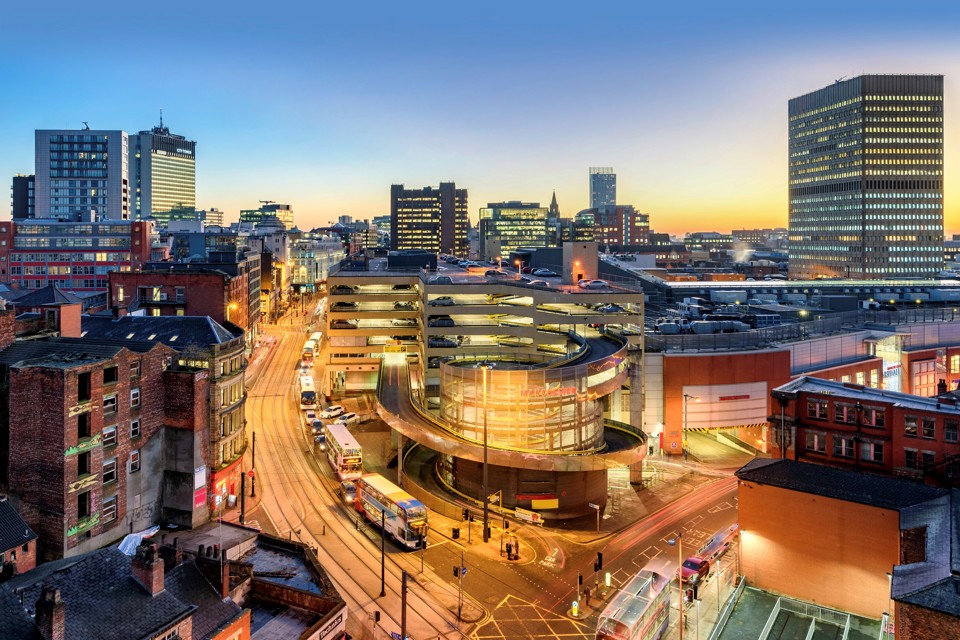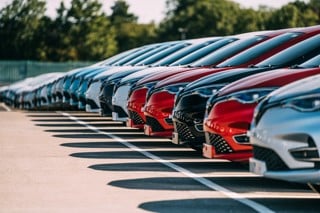Three in five people (62%) say they would support charging motorists a fee to drive around towns and cities. One in four (25%) are strongly supportive, a poll from Ipsos Mori suggests.
The survey comes as MPs on the Transport Committee launched an inquiry into zero emission vehicles and road pricing.
The committee will consider the implications of accelerating the shift to zero emission vehicles, including bus and freight vehicles, and the case for using innovative new technology to introduce some form of road pricing.
Chair of the Transport Committee, Huw Merriman MP, says that the Government decision to bring forward the ban on the sale of new petrol, hybrid and diesel cars, recently announced in the ‘Ten Point Plan’, is considered a “vital step” along the UK’s path to net zero.
The Government admitted in a new report published last week, that tax revenues are at significant risk from the switch to electric vehicles (EVs).
"The recent focus has been on a new scheme's revenue-raising potential given a multi-billion 'tax hole'," Ben Marshall, Ipsos Mori
Tax receipts, which are wholly dependent on individuals’ and businesses’ consumption of fossil fuels or emission of greenhouse gases, equated to £37 billion in 2019-20 or just over 4% of total revenues.
However, much of this revenue is likely to be “eroded during the transition to a net zero economy”, with the tax take “wholly or partially at risk”, it says.
“This inquiry will help us get into the details and practicalities of the policy and the financial implications,” said Merriman.
“A consequence of the transition to electric vehicles is a potential £40bn annual fiscal black hole, due to the reduction in fuel duty and vehicle excise duty. Something will have to change.”
The MPs will be exploring whether radical road pricing or ‘pay-as-you-drive’ schemes can offer a revenue-raising solution to this problem.
“We will explore the practicalities of different schemes, the level of public support for them, and best practice from other countries,” continued Merriman.
“We will also assess whether new technologies and pricing can both be utilised to incentivise consumer behaviour change, reduce congestion and promote active travel.”
The Transport Committee previously announced plans to look at road pricing before the 2019 General Election.
Ben Marshall, research director for transport and infrastructure at Ipsos Mori, says that reports the Chancellor of the Exchequer is weighing up plans for a new national system, with motorists “paying directly” to use Britain’s roads, have put road pricing back on the political agenda.
He also believes public opinion will play an important role, just as it did in curbing previous ambitions to find a new way of funding the country’s roads.
“The recent focus has been on a new scheme’s revenue-raising potential given a multi-billion ‘tax hole’ caused by the Coronavirus pandemic and a move to electric cars,” he said.
“But our survey shows that while both public and industry’s instincts are ‘pro’- the introduction of charging schemes in principle, practical implementation will matter.
“Hypothecation and communication about the social and environmental benefits of any scheme will be really important.”
Level of road pricing support
A recent Ipsos Mori survey of Captains of Industry found even higher levels of support for road pricing schemes which are designed to reduce traffic congestion and improve the local environment. Eight in ten, 82%, either strongly supported or tended to support such schemes.
Those with access to a car were equally as supportive as the wider public; 60% support the idea in principle, 22% are opposed.
The public have not always been behind schemes of this nature. A survey by Ipsos Mori in 2007, using the same question, found higher levels of opposition than support (48% were opposed, 33% in support).
Among both the public and captains, support for schemes weakens if the revenues collected are used to benefit the road user in the form of lower road tax – dropping from 62% to 39% (with 34% in opposition).
There is an even more marked shift among captains; from 82% support to 34% (there was 51% opposition).
Public transport is seen as a worthy beneficiary of the revenues collected from schemes; 64% of the public saying they would either strongly support or tend to support the introduction of schemes if all the revenues collected would be used to improve public transport. The same is true of 80% of captains.
Similarly, the suggestion that schemes which charge motorists result in a greener and cleaner future garners extra support and weakens opposition.
For example, while 21% of the public oppose schemes in principle, this falls to 15% of charges are higher for more polluting vehicles and 14% if revenues are used to improve air quality.
Hypothecation – earmarking the revenues raises for a specific purpose – also strengthens levels of support.
A third of the public, 33%, say they would strongly support these schemes if all revenues were used to tackle climate change, eight percentage points higher than it is when this isn’t a component of the scheme.
A similar pattern exists if revenues are raised to improve air quality; 31% of the public strongly support this.
Captains are especially supportive if charges are higher for polluting vehicles – 41% are strong supporters of this compared to 30% for schemes in general. Just 6% oppose this, along with 15% of the general public.























Login to comment
Comments
No comments have been made yet.